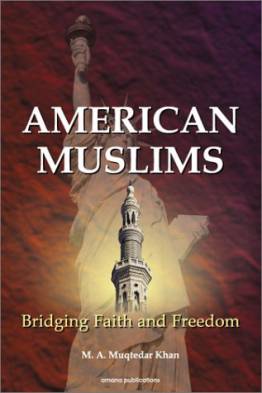REVIEW: A rare moderate voice


Khaled Ahmed
Muqtedar Khan, a PhD Muslim scholar teaching international studies at a college in the United States, speaks for Islam from a moderate point of view. He thinks Muslims in America should not be politically passive simply because they believe in khilafat or some utopian view of the umma. He thinks that being Americans and participating in the American political system is not violative of their faith. He wants them to come out of their isolationism and become dynamic in the American society. He recognises the fact that America is variable in its performance when it comes to foreign policy vis-à-vis Islam and the Muslim world. He knows that there are scholars like Daniel Pipes Judith Miller who think that Islam is anti-West, but he also knows that a more friendly view is expressed by a larger number of academics like Esposito and Bulliet.
As an Islamic scholar close to the identity of the clerics, he doesn’t see Islam as an anti-Western faith and opposes Muslim scholars who promote it. He is the rare young (he is 36) Muslim writer who has the courage to appreciate the intervention of the United States in Kosovo. He is wrong when he says that the Muslims in America appreciated what America did for the Muslims of Kosovo. The truth is that the image of America as Satan is so embedded in the Muslim psyche that facts like the ones enlisted by Muqtedar Khan on Kosovo are irrelevant. But it is remarkable that as a Muslim he has a free enough mind to acknowledge the truth. He is critical of America’s policy towards Israel and accuses it of being cruelly unjust to the Palestinians. He opposes the idea of the Islamic state on which Imam Khomeini based his government and doesn’t see much good in the current Iranian situation in which the elected government is powerless in the face of the dominant clergy. He opposes the idea of velayat-e-faqih because he thinks it is against the spirit of the Quran. He believes that the clergy is not exempted by the Quran from sin and crime. Its unelected authority therefore is not justified.
Unfortunately, Pakistan receives the harshest treatment from the author. The only ‘premeditated’ state, Pakistan is simply the pits: ‘Nobody, absolutely nobody, considers Pakistan as a model nation worthy of emulation of its moral and material progress. Forget the rest of the world, even in the Muslim world Pakistan is not considered of worthy of leadership. In its present condition it can do nothing for Islam or Muslims, and the thousands of the Muslims who died for Pakistan must be wondering if their sacrifices were in vain. Pakistan is also not a source of security to the Muslims in the region. Bangladeshis have suffered from its military and Indian Muslims, on a daily basis, suffer the consequences of its un-Islamic foreign policy and materialist/nationalist geopolitics’. He thinks that threat to Pakistan’s security is internal and not external. He thinks that ideological goals should not be pursued inside Pakistan as long as long as there is internal economic and political instability. He thinks Pakistan has bled internally because of its ill-considered involvement in Kashmir, Afghanistan and conflict with India.
The author has rightly pointed out the flaws of the states as conceived and operated by Muslim majorities. It is only when he visits Singapore, where the Malay Muslims are in minority, that he starts liking the way Islam is being practised. He notes the proliferation of mosques in the city and the large number of Muslims in important government positions and inside the cabinet. It develops that Muslims are good or can be good (as in the US and the UK) when they live as minorities. As soon as the Muslims get a state of their own everything goes wrong. The tragic fact today is, with apologies to the author, that the Muslims as minorities too are beginning to reject integration, thus paving the way for their expulsion at some future date.
– Khaled Ahmed









